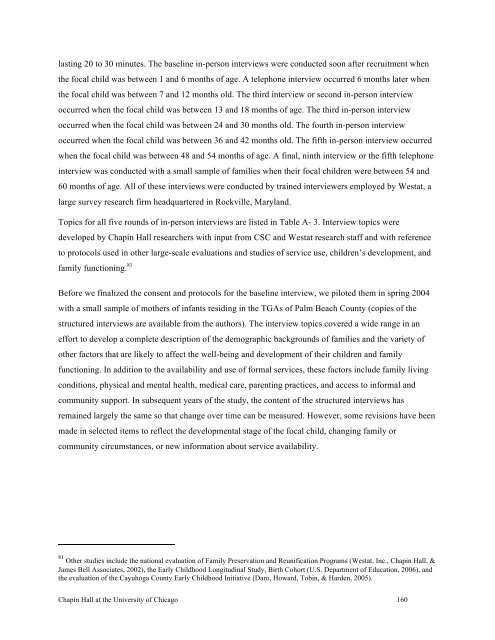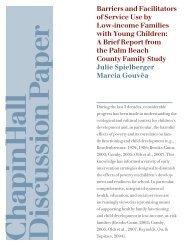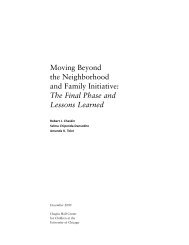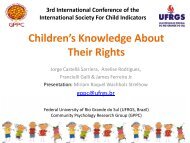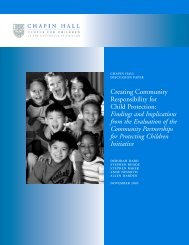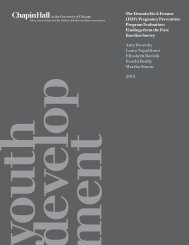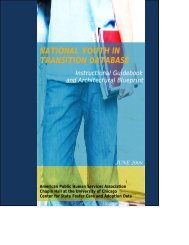2011 The Palm Beach County Family Study (Full Report)
2011 The Palm Beach County Family Study (Full Report)
2011 The Palm Beach County Family Study (Full Report)
- No tags were found...
You also want an ePaper? Increase the reach of your titles
YUMPU automatically turns print PDFs into web optimized ePapers that Google loves.
lasting 20 to 30 minutes. <strong>The</strong> baseline in-person interviews were conducted soon after recruitment whenthe focal child was between 1 and 6 months of age. A telephone interview occurred 6 months later whenthe focal child was between 7 and 12 months old. <strong>The</strong> third interview or second in-person interviewoccurred when the focal child was between 13 and 18 months of age. <strong>The</strong> third in-person interviewoccurred when the focal child was between 24 and 30 months old. <strong>The</strong> fourth in-person interviewoccurred when the focal child was between 36 and 42 months old. <strong>The</strong> fifth in-person interview occurredwhen the focal child was between 48 and 54 months of age. A final, ninth interview or the fifth telephoneinterview was conducted with a small sample of families when their focal children were between 54 and60 months of age. All of these interviews were conducted by trained interviewers employed by Westat, alarge survey research firm headquartered in Rockville, Maryland.Topics for all five rounds of in-person interviews are listed in Table A- 3. Interview topics weredeveloped by Chapin Hall researchers with input from CSC and Westat research staff and with referenceto protocols used in other large-scale evaluations and studies of service use, children’s development, andfamily functioning. 81Before we finalized the consent and protocols for the baseline interview, we piloted them in spring 2004with a small sample of mothers of infants residing in the TGAs of <strong>Palm</strong> <strong>Beach</strong> <strong>County</strong> (copies of thestructured interviews are available from the authors). <strong>The</strong> interview topics covered a wide range in aneffort to develop a complete description of the demographic backgrounds of families and the variety ofother factors that are likely to affect the well-being and development of their children and familyfunctioning. In addition to the availability and use of formal services, these factors include family livingconditions, physical and mental health, medical care, parenting practices, and access to informal andcommunity support. In subsequent years of the study, the content of the structured interviews hasremained largely the same so that change over time can be measured. However, some revisions have beenmade in selected items to reflect the developmental stage of the focal child, changing family orcommunity circumstances, or new information about service availability.81 Other studies include the national evaluation of <strong>Family</strong> Preservation and Reunification Programs (Westat, Inc., Chapin Hall, &James Bell Associates, 2002), the Early Childhood Longitudinal <strong>Study</strong>, Birth Cohort (U.S. Department of Education, 2006), andthe evaluation of the Cayuhoga <strong>County</strong> Early Childhood Initiative (Daro, Howard, Tobin, & Harden, 2005).Chapin Hall at the University of Chicago 160


